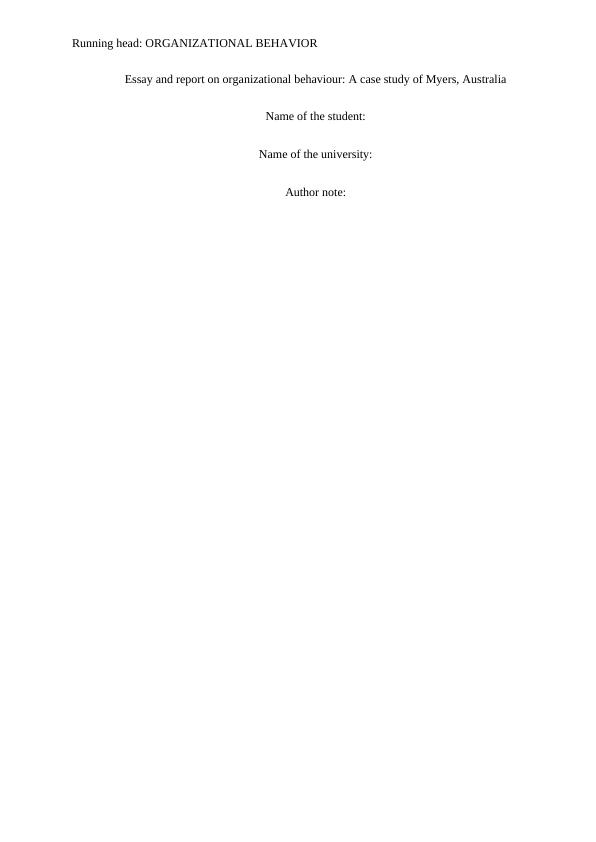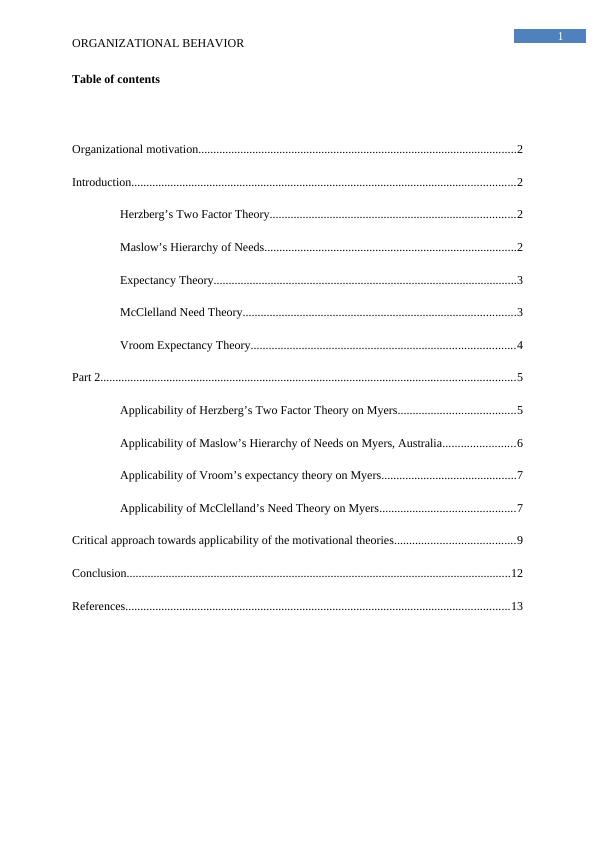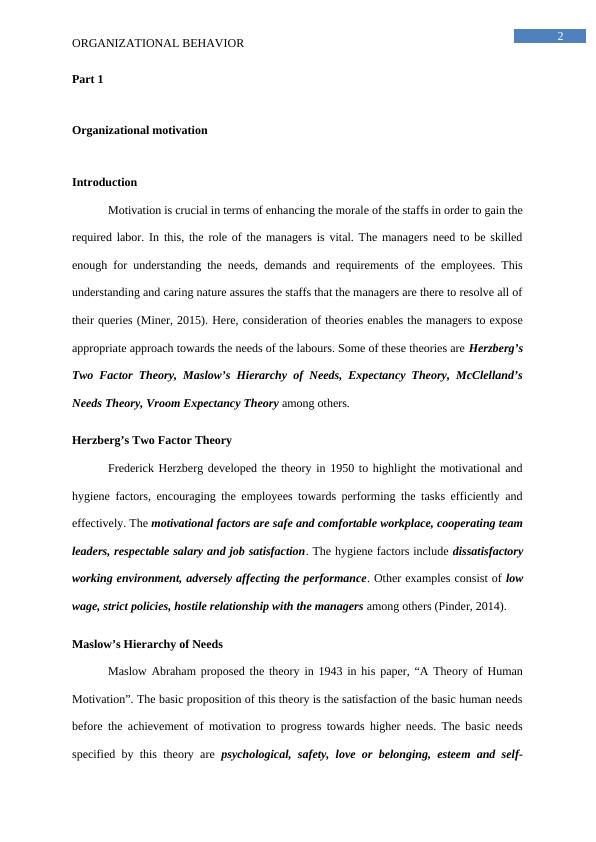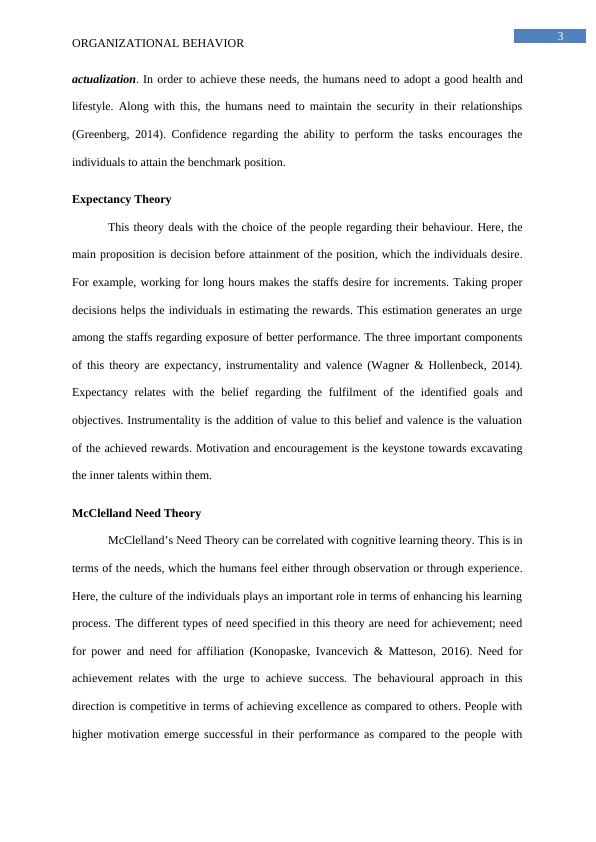Organizational Behaviour: A Case Study of Myers, Australia
16 Pages4468 Words481 Views
Added on 2023-06-11
About This Document
This essay and report on organizational behaviour focuses on a case study of Myers, Australia. It discusses various motivational theories such as Herzberg’s Two Factor Theory, Maslow’s Hierarchy of Needs, Expectancy Theory, McClelland’s Needs Theory, and Vroom Expectancy Theory and their applicability on Myers. The essay also critically evaluates the effectiveness of these theories in the workplace.
Organizational Behaviour: A Case Study of Myers, Australia
Added on 2023-06-11
ShareRelated Documents
End of preview
Want to access all the pages? Upload your documents or become a member.
Organizational Behavior Issues: Motivation, Communication, and Decision Making
|17
|1775
|202
Motivation Theories for Job Satisfaction in Retail Sector Private Limited Company
|8
|2680
|73
Introduce to the Motivation Theory
|6
|1163
|40
Managing a Sales Team Assignment
|12
|3162
|165
Maslow’s Hierarchy of Needs Theory for Motivation and Job Satisfaction
|13
|2813
|2
Motivational Theories and Their Impact on Organizations
|8
|921
|352




